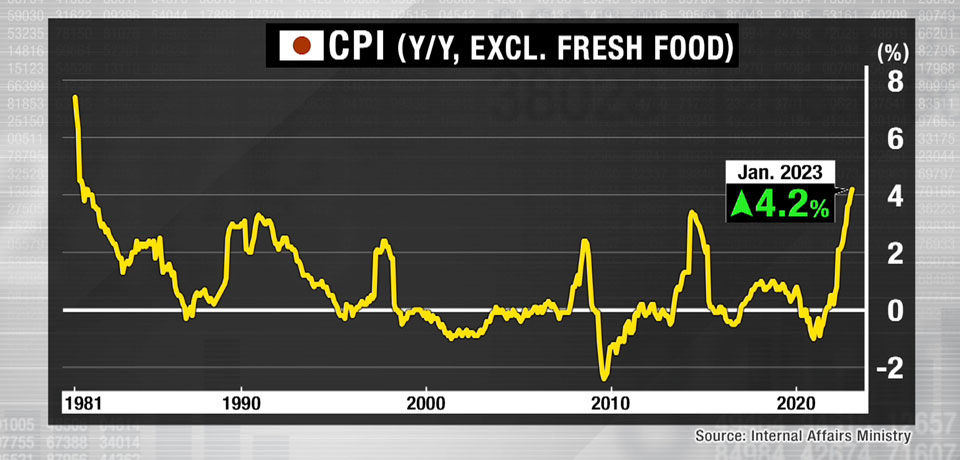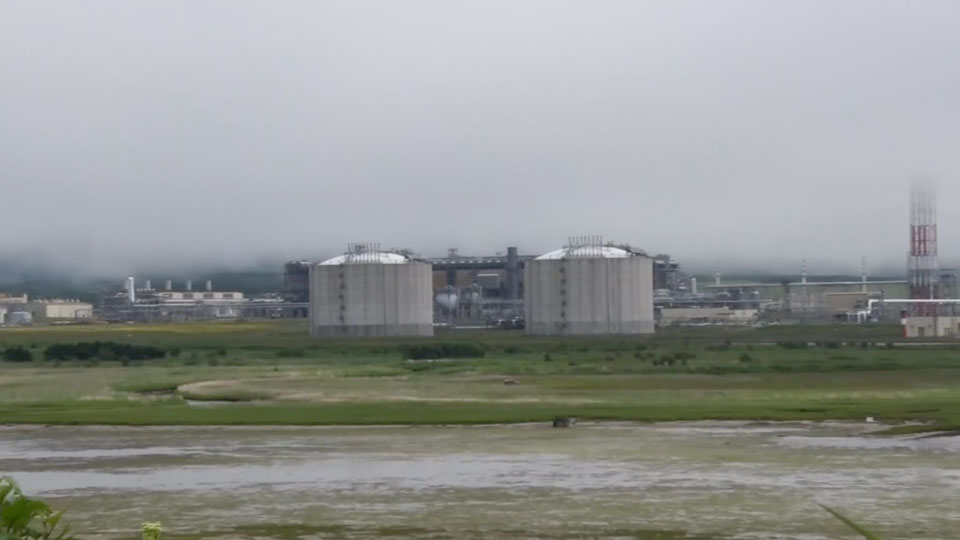Sanctions and the global economy
The decision to impose sanctions on Russia was not an easy call for Japan, which used to rely heavily on gas and oil imports from its northern neighbor. Japan acted in accord with G7 countries in response to the Russian invasion launched one year ago.
G7 nations banned Russian banks from using SWIFT, an international payment system. They prohibited exports of semiconductors and high-tech products to Russia, and announced a ban on coal and oil imports from Russia after a grace period.
The sanctions started to take real effect in December as the G7 agreed to a 60 dollar per barrel price cap for Russian oil. At the same time, the European Union announced it would ban Russian oil products from February.
Russia's energy export revenue has taken a hit. The country's monthly fiscal deficit reached a record of nearly 3.9 trillion rubles (more than US$51 billion) in December and 1.75 trillion rubles (US$23 billion USD) in January. Wartime spending is also weighing on the country's economy.
As Europe – the biggest consumer of Russian oil and gas — backs away, Moscow is trying to sell its products to China, India, and Turkey at a discount rate up to 40 percent lower than the global market price.
The World Bank is forecasting that Russia will see its second consecutive year of negative annual growth in 2023.
Harada Daisuke, a director at the Japan Organization for Metals and Energy Security, predicts that Russia's days as a dominant gas supplier may be numbered. He points to new LNG projects in the US, Qatar, and eastern Africa that will boost global gas production.
Harada says Russia may only be able to hang on for three to four years before its rivals can match the output that reaches Europe. That shift could have a hugely detrimental effect on the Russian economy and its people.
How Japan is affected
Amid strained supply chains and higher energy prices, Japan's consumer price index has risen four percent from a year earlier, a level not seen in more than four decades. Although inflation is expected to trend down towards the end of the year, economists warn that the worst may not be over.

An unusually warm northern hemisphere winter has helped preserve energy supplies. But if next winter is harsh, higher electricity bills for families and businesses could harm Japan's economy.
Energy security is also a concern. As oil imports from Russia dry up, Japan is largely dependent on the Middle East. Japanese firms still hold stakes in the Sakhalin-2 oil and gas project, but with main operator Shell announcing its departure, it is unclear whether it remains a stable supply source for Japan.

The stakes are high for the Group of Seven summit in Hiroshima this May, with hopes for a viable plan to end Russia's attack on Ukraine. Japanese leaders will be looking to strengthen energy security while avoiding protectionism during these uncertain times of geopolitical risk.

